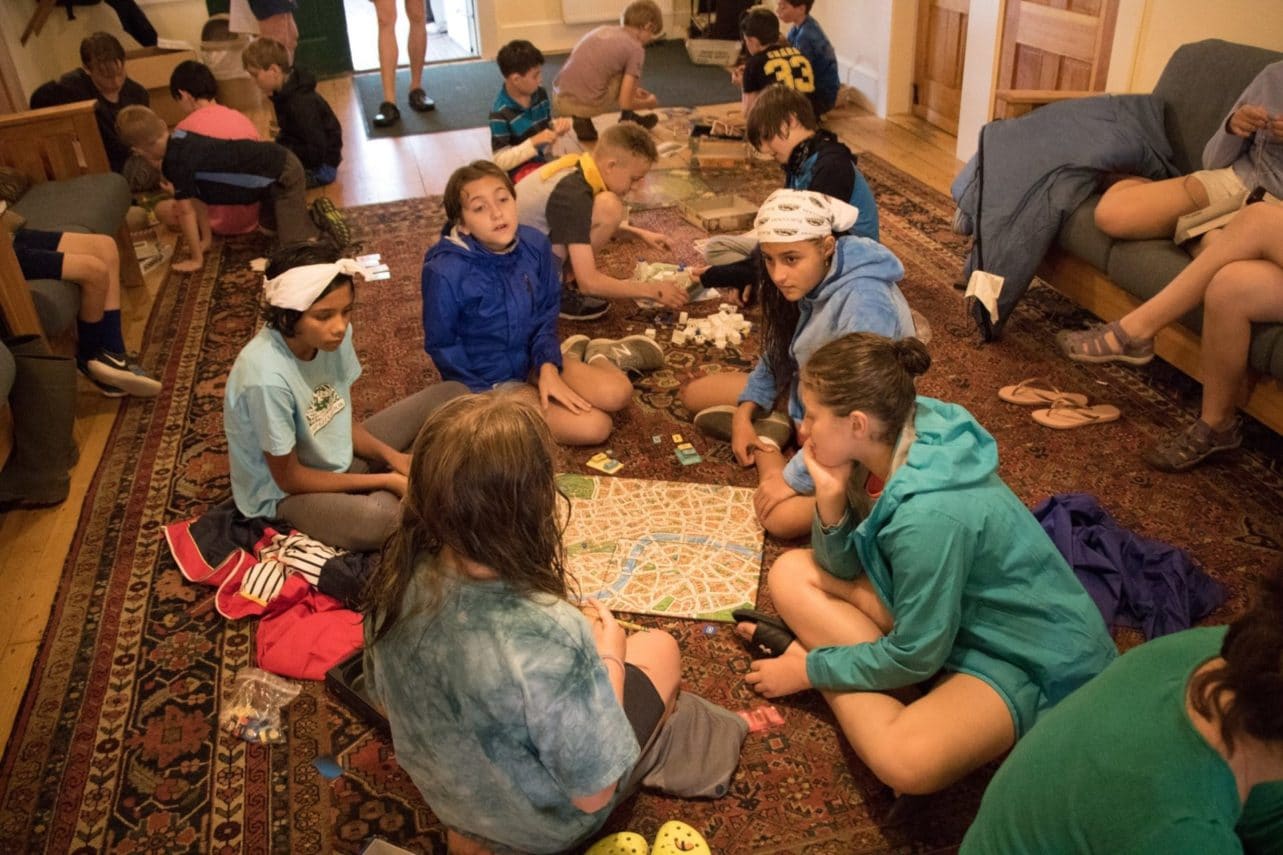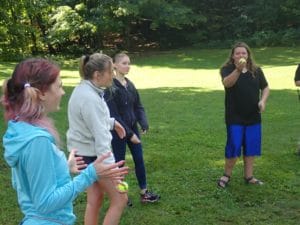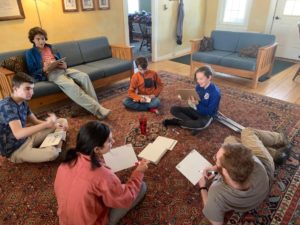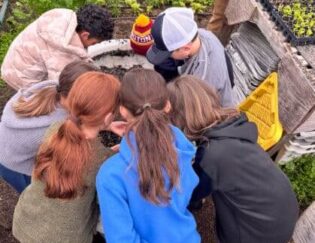The Spirit of Play
January 7, 2020
3 min read

Another winter has come and we have once again decided to give our game closet a bit of a makeover, adding some new games, recycling older ones and creating some local versions of our own favorite ways to play. In 1938 dutch historian Johan Huizinga called humanity ‘Homo Ludens’ in his book by the same title. This loosely means “man the player” and it implies that play as well as game playing is “a distinct and highly important factor in the world’s life and doings”. He indeed makes the case for play not just being a significant part of culture but that culture is in itself a form of play. While it’s easy to focus on board and card games, play encompasses so much more.
Groups at Camp Glen Brook sing together, create together and overcome challenges together. We practice the spirit of play and being playful. This is the spirit that allows us to look past the goal of a game, such as putting the ball in the basket, and put the enjoyment of the other players before our own victory. We can make jokes, show off, and cheer each other on, even when the ‘rules’ of a game do not require it. This is play at it’s best.
Nachmanovitch coined the phrase Galumphing in his book “Free Play: Improvisation in Life and Art”. It is something unique in many ways to human play though we sometimes see it in animals as well.
Galumphing is the immaculately rambunctious and seemingly inexhaustible play-energy apparent in puppies, kittens, children, baby baboons—and also in young communities and civilizations. Galumphing is the seemingly useless elaboration and ornamentation of activity. It is profligate, excessive, exaggerated, uneconomical. We galumph when we hop instead of walk, when we take the scenic route instead of the efficient one, when we play a game whose rules demand a limitation of our powers, when we are interested in means rather than in ends. We voluntarily create obstacles in our path and then enjoy overcoming them.
– Stephen Nachmanovitch

People who embrace play are more adaptable and ready to take on the complex world around us. The importance of play in creating culture and identity is immeasurable.
 As we conclude another family weekend, another summer or winter camp, another visit from a school group, another successful Gap semester, we feel great gratitude for play. We have our new flashy games, and there is joy in watching a 3rd grader excitedly teach the game he learned only yesterday to a group of new friends, but it is even more exciting to watch them improvise. They make new rules, negotiate additional ways to play, and eventually run to the outdoors to play with trees, stones and snow in whatever way their imagination sways them.
As we conclude another family weekend, another summer or winter camp, another visit from a school group, another successful Gap semester, we feel great gratitude for play. We have our new flashy games, and there is joy in watching a 3rd grader excitedly teach the game he learned only yesterday to a group of new friends, but it is even more exciting to watch them improvise. They make new rules, negotiate additional ways to play, and eventually run to the outdoors to play with trees, stones and snow in whatever way their imagination sways them.
Children and adults alike use play to create structure and then use structure to inspire new forms of play. This cycle is so natural to the youth that experience Camp Glen Brook. Play is contagious and we are often inspired by our campers to play and play often, something that is too easy to forget as adults. It is in play that we give our lives and relationships new meaning.



